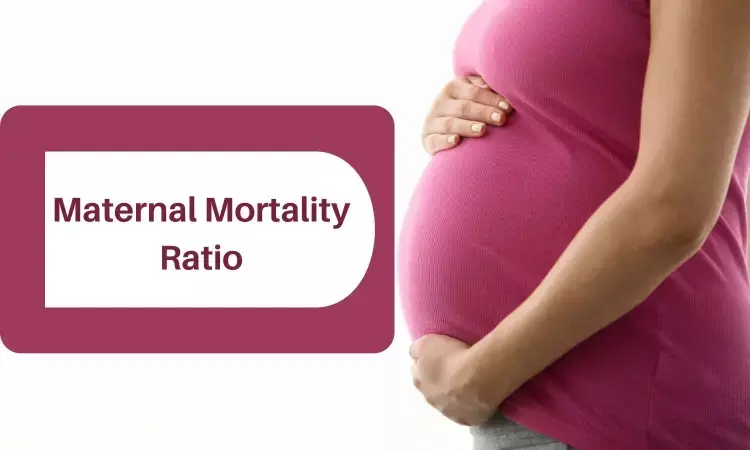- Home
- Medical news & Guidelines
- Anesthesiology
- Cardiology and CTVS
- Critical Care
- Dentistry
- Dermatology
- Diabetes and Endocrinology
- ENT
- Gastroenterology
- Medicine
- Nephrology
- Neurology
- Obstretics-Gynaecology
- Oncology
- Ophthalmology
- Orthopaedics
- Pediatrics-Neonatology
- Psychiatry
- Pulmonology
- Radiology
- Surgery
- Urology
- Laboratory Medicine
- Diet
- Nursing
- Paramedical
- Physiotherapy
- Health news
- Fact Check
- Bone Health Fact Check
- Brain Health Fact Check
- Cancer Related Fact Check
- Child Care Fact Check
- Dental and oral health fact check
- Diabetes and metabolic health fact check
- Diet and Nutrition Fact Check
- Eye and ENT Care Fact Check
- Fitness fact check
- Gut health fact check
- Heart health fact check
- Kidney health fact check
- Medical education fact check
- Men's health fact check
- Respiratory fact check
- Skin and hair care fact check
- Vaccine and Immunization fact check
- Women's health fact check
- AYUSH
- State News
- Andaman and Nicobar Islands
- Andhra Pradesh
- Arunachal Pradesh
- Assam
- Bihar
- Chandigarh
- Chattisgarh
- Dadra and Nagar Haveli
- Daman and Diu
- Delhi
- Goa
- Gujarat
- Haryana
- Himachal Pradesh
- Jammu & Kashmir
- Jharkhand
- Karnataka
- Kerala
- Ladakh
- Lakshadweep
- Madhya Pradesh
- Maharashtra
- Manipur
- Meghalaya
- Mizoram
- Nagaland
- Odisha
- Puducherry
- Punjab
- Rajasthan
- Sikkim
- Tamil Nadu
- Telangana
- Tripura
- Uttar Pradesh
- Uttrakhand
- West Bengal
- Medical Education
- Industry
India can lead in shaping Maternal and Child Healthcare Strategies for Developing Nations: PMNCH's Rajat Khosla

New Delhi: India's extensive experience in addressing maternal, child, and adolescent health challenges can offer valuable guidance to developing nations, according to Rajat Khosla, Executive Director of the Partnership for Maternal, Newborn and Child Health (PMNCH).
In an exclusive interview with PTI, Khosla emphasized that India, as a leading figure in the Global South, is well-positioned to share best practices for enhancing health outcomes globally.
"The nation's achievements in significantly reducing maternal mortality rates (MMR) and effectively implementing the Rashtriya Kishor Swasthya Karyakram (RKSK) across its vast and diverse landscape stand as exemplary models for other countries," Khosla said.
India's MMR declined from 384 in 2000 to 97 in 2020, whereas the global MMR came down from 339 in 2000 to 223 in 2020.
He said, "This success is attributed to the concerted efforts of the health workers and the effective implementation of multisectoral policies", adds PTI.
Polycrisis (conflict, climate change, and cost-of-living) and increasing complexity of challenges are exacerbating inequities between and within countries, specifically among the fragile (LMICS) states and poorest communities who continue to bear the biggest burden of preventable deaths among women, children, and adolescents, he said.
India like many low- and middle-income countries, or LMICs, faces significant challenges, Khosla said.
However, it has made remarkable progress through initiatives like the Ayushman Bharat scheme, the National Health Mission, and community health programmes like the ASHA initiative.
"India's experience in tackling these challenges can provide invaluable lessons in policy formulation, community engagement, and sustainable health interventions. By sharing its strategies, India can guide other developing nations in crafting effective health programmes that cater to diverse populations," Khosla said.
PMNCH has a long history and relationship with the Indian government.
In addition to being one of its long-standing partners, India has been instrumental in PMNCH's genesis as a global alliance that brought together 80 organisations belonging to three partnerships focused on safe motherhood and newborn health and their survival, Khosla said.
The 'Delhi Declaration,' a landmark statement developed in 2005 in New Delhi, outlined the vision and goals of the new partnership, which came to ultimately be known as the PMNCH.
India's endorsement of the 'Adolescents and the Adolescent Well-being Framework,' alongside 29 global champions in an open letter in the BMJ, are just some examples of their support, he said.
As PMNCH approaches its 20th anniversary, its priorities include accelerating progress towards the 2030 Sustainable Development Goals, enhancing political advocacy, and mobilising resources for maternal, newborn, child and adolescent well-being, Khosla said, news agency PTI reported.
Kajal Rajput joined Medical Dialogues as an Correspondent for the Latest Health News Section in 2019. She holds a Bachelor's degree in Arts from University of Delhi. She manly covers all the updates in health news, hospitals, doctors news, government policies and Health Ministry. She can be contacted at editorial@medicaldialogues.in Contact no. 011-43720751


